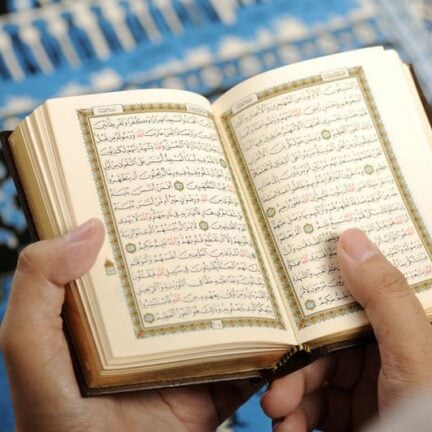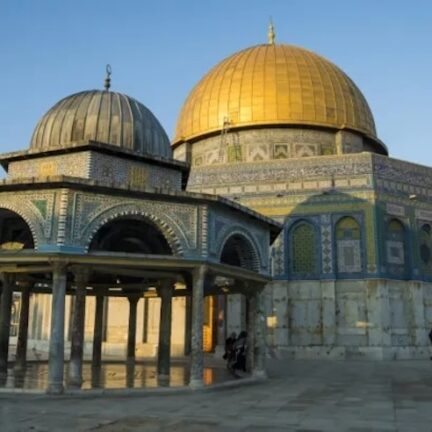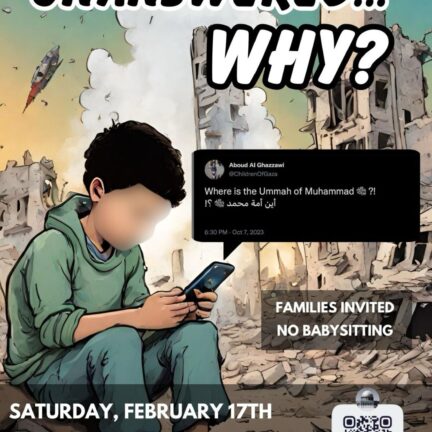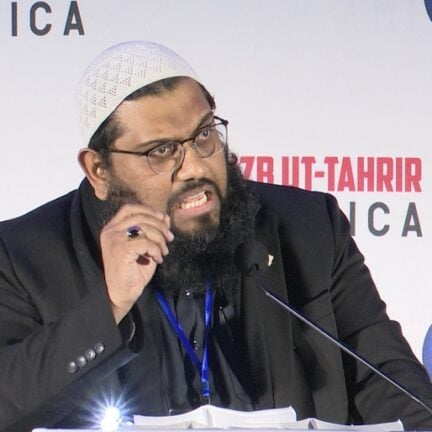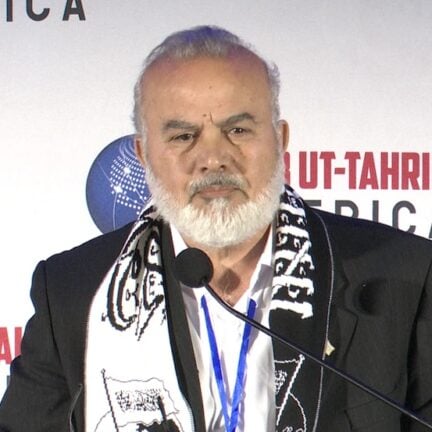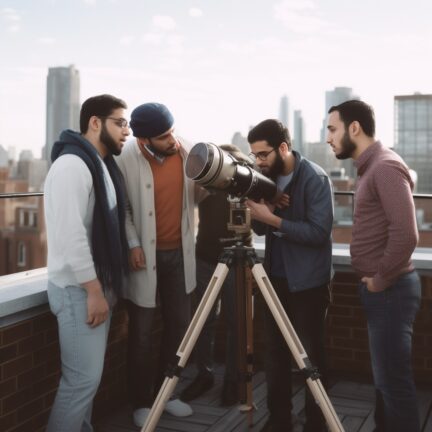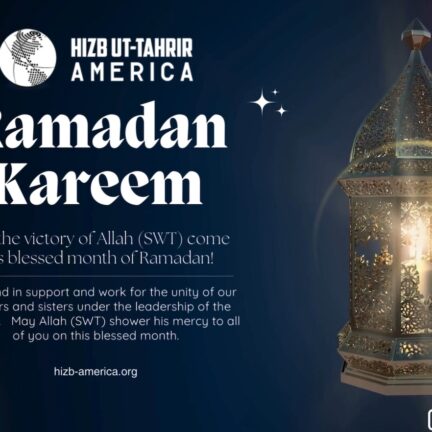Ramadhan-Made History
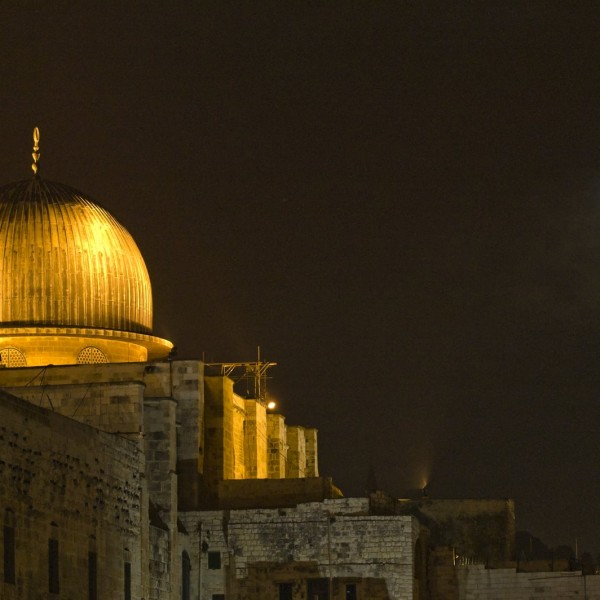
“We have indeed revealed it, (Al-Quran) in the night of power.” (TMQ 97:1)
No doubt that Ramadan is very special to Muslims. As we enter the marked month of forgiveness and mercy, it is important to tie our past with our present, and learn from the Prophet (saw) and his followers what Ramadhan meant to them. We want to shine some light on critical events that happened in Ramadan that changed the course of the Muslim Ummah and humanity at large.
The first revelation. The most significant event that occurred during Ramadhan is the revelation of the Quran to Prophet Muhammad (saw). In this month, Quran was revealed; a book which struck the intellect and shook the hearts of mankind. A book which called man back to the worship of Allah. A book which illuminated the truth and exposed the falsehood.
Battle of Badr
In the second year of Hijrah the Messenger of Allah set out on the 8th of Ramadhan with three hundred and five of his companions mounted on seventy camels. They were met by a well equipped army of the nobility of Quraish, intent on putting out the light of Islam. On Friday morning the 17th of Ramadhan, despite being outnumbered three to one and appearing weak and unseasoned, the Muslims defended their faith with a burning desire to protect Islam and the Prophet (saw) and meet their Lord through martyrdom. Allah (swt) gave them a decisive victory that would never be forgotten.
The Battle of the Ditch
In 5 A.H., Quraish called upon all tribes, leaders and groups, throughout the whole Arabian Peninsula, to join the one and final fight to put out the light of Islam and kill the Prophet (saw) and his companions in Madinah. Refering to this incident, Quran was revealed.
“When they came upon you from above you and from below you, and when the eyes turned dull, and the hearts rose up to the throats, and you began to think diverse thoughts of Allah” (TMQ 33:10).
Only after the Jewish tribes broke the treaty and betrayed the Prophet (saw), Allah granted the believers victory and sent his soldiers (the wind) to blow out the clans camp.
Conquest of Makkah
By Ramadhan of 8 A H., the treaty of Hudaibiyya had been broken and the Muslim armies had engaged the Byzantines in the North. Prophet Muhammad (saw) saw the need to defend Muslims from Khuza’ah and strike a fatal blow to Kufr in the Arabian Peninsula and conquer the city of Makkah. Now the time had come to purify the Kaabah of nakedness and abomination. The Prophet (saw) set out with an army having more armed men than Madinah had ever seen before. The city of Makkah was conquered without a battle, on the 20th of Ramadhan. This was one of the most important dates in Islamic history for after it, Islam was firmly entrenched in the Arabian Peninsula.
During the same month and year, after smashing the idols of Makkah, detachments were sent to the major centers of polytheism and al-Lat, Manat and Suwa, some of the greatest idols of Arabia, were destroyed.
Battle of Tabook
In 9 A.H., after the Prophet (saw) returned to Madinah from the conquest of Makkah and the battle of Hunayn, news reached him that the Romans were preparing to raid the Northern part of the Arabian Peninsula in order to wipe out the memory of the spectacular tactical withdrawal which the Muslim army had staged in the battle of Mu’tah. He (saw) sent for all the tribes asking them to prepare for war so that as many Mujahideen as possible could be gathered. Those who had embraced Islam with their hearts full of guidance and light hurried to the call of Allah’s Messenger with great zeal and courage. Some of them were poor, not even possessing a mule to ride on, and others were rich. Many of them brought all their possessions and handed them to the Messenger of Allah (saw). It was those who volunteered wholeheartedly to fight in the way of Allah, longing all the while for martyrdom.
They proceeded to advance en-masse in a spectacular display of strength and might which was witnessed by the people remaining in Madinah. Women climbed onto the rooftops to see off this massive force of Mujahideen.
Such was the month of Ramadhan in the time of the Prophet (saw). After the death of the Prophet (saw), the Muslims under the Khilafah carried on this tradition.
Battle of Bowayb
In 13 A.H., Muslims and Persians met on the 13th day of Ramadhan in one of the most furious battles ever fought between them. Muslims consisted of 12,000, while the Persians numbered 120,000; of them are 100,000 riders. The great Muslim leader, Al-Muthanna Ibn Harithah, asked the army to break their fast and make Iftar first. This way he told them they would be stronger. Then the furious fight began… Over 100,000 polytheist from the Persian army was killed and the remaining 20,000 ran away or jumped in the river. A huge number of the great sahabah met Allah that day as martyrs. This battle was considered the most important battle between Muslims and the Persians that led to the removal of the Persian Empire.
Battle of Qadisiyyah
In 14 A.H., Muslims again met the Persians in the second most important battle in the struggle between Islam and polytheism. About 10,000 Muslims led by the great leader; Amr Ibn Ala’s, turned the throne of Czar into booty for Muslims. Czar and some 80,000 Persian soldiers were killed and the whole Iraq land including major parts of Iran was freed from the slavery of Czarism. The dominance of the Persian Empire over the eastern part of the world was terminated and Islam was propagated.
Conquest of Andalusia
By 92 A.H., Islam had spread across North Africa, Iran, Afghanistan, Yemen and Syria. Spain was under the tyrannical rule of King Roderic of the Visigoths. Roderic had forced his six million serfs and persecuted Jews to seek the aid of the Muslims of North Africa. Musa ibn Nusair, the Umayyad governor of North Africa, responded by sending his courageous general Tariq ibn Ziyad at the head of 12,000 troops.
In Ramadhan of that year, they were confronted with a combined Visigoth army of 90,000 Christians led by Roderic himself. After burning his boats, Tariq motivated the Muslims warning them that Paradise lay ahead of them and defeat and the sea to the rear. They burst with great enthusiasm and Allah (SWT) manifested a clear victory over the forces of disbelief. Not only were Roderic and his forces completely annihilated, but Tariq and Musa succeeded in liberating all of Spain, Sicily and parts of France. This was the beginning of the Golden Age of Al-Andalus where Muslims ruled for over 700 years.
Conquest of Ammooryah
In 224 A.H., the News reached the great Muslim leader, Al-Mu’tasem, that one Muslim woman was shouting his name asking for help while being tortured in the Roman prison in the city of Ammooryah. When he heard that, he swore by Allah that he would prepare a furious army, riding only white horses to help the Muslim woman, defend the Muslim honour and kill the one who tortured her. That day, the Muslim woman was freed and her honour was protected. The city of Ammooryah (Capital of the Romans) was conquered and the Roman army was defeated.
Battle of Ein Jaloot
In the seventh century A.H. the Mongols were sweeping across Asia destroying everything that lay in their path. Genghis Khan called himself “the scourge of God sent to punish humanity for their sins”. Baghdad, the leading city of the Muslim world, was sacked. Over 1,800,000 Muslims were killed. Wine was sprinkled in the masjids and no Adhan was allowed. In the wake of such a disaster threatening the whole Muslim world, Allah (swt) raised up from the Mamluks of Egypt, Saifuddin Qutz, who united the Muslim army and met the Mongols at Ain Jalut on Friday, 25 Ramadhan 658 A.H. Qutz told his army to wait after the Jumu’ah Salah: “Do not fight them until it is sunset and the shadows appear and the winds stir, and the preachers and people start to implore Allah for us in their prayers”, and thereafter the fighting began. The Muslims with the help of Allah (swt), cunning strategy and unflinching bravery, crushed the Mongol army and restored Belad El-Sham entirely from the hands of the Tartars and the Mongolians.
Battles against the Crusaders
In the year 682 A.H. (Ramadhan, 4th), Salahuddin Ayyubi with the Muslim Mujahideen of the Khilafah, fought one of the most important battles in the history of Islam. The Muslims on this day, in one single day, virtually routed all local Christian forces capable of defending the Crusaders establishment in the Near East. Facing no resistance, Salahuddin took his time to reach the city of Jerusalem on Friday, the 9th of October, 1187 C.E. (Christain Era), and the Holy city was purified.
Many other major battles and conquests happened in Ramadhan, like the conquest of Rhodes, Cyprus, Bosnia, Serbia, conquests in France, Harem, Armenia, Antakya and the Battle of Balat Ash-shuhada’.
This was the spirit of Ramadhan that enabled our righteous forefathers to face seemingly impossible challenges. It was a time of intense activity, spending the day in the saddle and the night in prayer whilst calling upon Allah (SWT) for His mercy and forgiveness. Today, the Muslim world is faced with disunity, colonisation, widespread corruption and economic deprivation. Surely we are in need of the Khilafah so we can walk in the footsteps of our beloved Prophet (saw), the illustrious Sahabah, Tariq ibn Ziyad, Qutuz, Salahuddin and the countless heroes of Islam.
“We have indeed revealed it, (Al-Quran) in the night of power.” (TMQ 97:1)
No doubt that Ramadan is very special to Muslims. As we enter the marked month of forgiveness and mercy, it is important to tie our past with our present, and learn from the Prophet (saw) and his followers what Ramadhan meant to them. We want to shine some light on critical events that happened in Ramadan that changed the course of the Muslim Ummah and humanity at large.
The first revelation. The most significant event that occurred during Ramadhan is the revelation of the Quran to Prophet Muhammad (saw). In this month, Quran was revealed; a book which struck the intellect and shook the hearts of mankind. A book which called man back to the worship of Allah. A book which illuminated the truth and exposed the falsehood.
Battle of Badr
In the second year of Hijrah the Messenger of Allah set out on the 8th of Ramadhan with three hundred and five of his companions mounted on seventy camels. They were met by a well equipped army of the nobility of Quraish, intent on putting out the light of Islam. On Friday morning the 17th of Ramadhan, despite being outnumbered three to one and appearing weak and unseasoned, the Muslims defended their faith with a burning desire to protect Islam and the Prophet (saw) and meet their Lord through martyrdom. Allah (swt) gave them a decisive victory that would never be forgotten.
The Battle of the Ditch
In 5 A.H., Quraish called upon all tribes, leaders and groups, throughout the whole Arabian Peninsula, to join the one and final fight to put out the light of Islam and kill the Prophet (saw) and his companions in Madinah. Refering to this incident, Quran was revealed.
“When they came upon you from above you and from below you, and when the eyes turned dull, and the hearts rose up to the throats, and you began to think diverse thoughts of Allah” (TMQ 33:10).
Only after the Jewish tribes broke the treaty and betrayed the Prophet (saw), Allah granted the believers victory and sent his soldiers (the wind) to blow out the clans camp.
Conquest of Makkah
By Ramadhan of 8 A H., the treaty of Hudaibiyya had been broken and the Muslim armies had engaged the Byzantines in the North. Prophet Muhammad (saw) saw the need to defend Muslims from Khuza’ah and strike a fatal blow to Kufr in the Arabian Peninsula and conquer the city of Makkah. Now the time had come to purify the Kaabah of nakedness and abomination. The Prophet (saw) set out with an army having more armed men than Madinah had ever seen before. The city of Makkah was conquered without a battle, on the 20th of Ramadhan. This was one of the most important dates in Islamic history for after it, Islam was firmly entrenched in the Arabian Peninsula.
During the same month and year, after smashing the idols of Makkah, detachments were sent to the major centers of polytheism and al-Lat, Manat and Suwa, some of the greatest idols of Arabia, were destroyed.
Battle of Tabook
In 9 A.H., after the Prophet (saw) returned to Madinah from the conquest of Makkah and the battle of Hunayn, news reached him that the Romans were preparing to raid the Northern part of the Arabian Peninsula in order to wipe out the memory of the spectacular tactical withdrawal which the Muslim army had staged in the battle of Mu’tah. He (saw) sent for all the tribes asking them to prepare for war so that as many Mujahideen as possible could be gathered. Those who had embraced Islam with their hearts full of guidance and light hurried to the call of Allah’s Messenger with great zeal and courage. Some of them were poor, not even possessing a mule to ride on, and others were rich. Many of them brought all their possessions and handed them to the Messenger of Allah (saw). It was those who volunteered wholeheartedly to fight in the way of Allah, longing all the while for martyrdom.
They proceeded to advance en-masse in a spectacular display of strength and might which was witnessed by the people remaining in Madinah. Women climbed onto the rooftops to see off this massive force of Mujahideen.
Such was the month of Ramadhan in the time of the Prophet (saw). After the death of the Prophet (saw), the Muslims under the Khilafah carried on this tradition.
Battle of Bowayb
In 13 A.H., Muslims and Persians met on the 13th day of Ramadhan in one of the most furious battles ever fought between them. Muslims consisted of 12,000, while the Persians numbered 120,000; of them are 100,000 riders. The great Muslim leader, Al-Muthanna Ibn Harithah, asked the army to break their fast and make Iftar first. This way he told them they would be stronger. Then the furious fight began… Over 100,000 polytheist from the Persian army was killed and the remaining 20,000 ran away or jumped in the river. A huge number of the great sahabah met Allah that day as martyrs. This battle was considered the most important battle between Muslims and the Persians that led to the removal of the Persian Empire.
Battle of Qadisiyyah
In 14 A.H., Muslims again met the Persians in the second most important battle in the struggle between Islam and polytheism. About 10,000 Muslims led by the great leader; Amr Ibn Ala’s, turned the throne of Czar into booty for Muslims. Czar and some 80,000 Persian soldiers were killed and the whole Iraq land including major parts of Iran was freed from the slavery of Czarism. The dominance of the Persian Empire over the eastern part of the world was terminated and Islam was propagated.
Conquest of Andalusia
By 92 A.H., Islam had spread across North Africa, Iran, Afghanistan, Yemen and Syria. Spain was under the tyrannical rule of King Roderic of the Visigoths. Roderic had forced his six million serfs and persecuted Jews to seek the aid of the Muslims of North Africa. Musa ibn Nusair, the Umayyad governor of North Africa, responded by sending his courageous general Tariq ibn Ziyad at the head of 12,000 troops.
In Ramadhan of that year, they were confronted with a combined Visigoth army of 90,000 Christians led by Roderic himself. After burning his boats, Tariq motivated the Muslims warning them that Paradise lay ahead of them and defeat and the sea to the rear. They burst with great enthusiasm and Allah (SWT) manifested a clear victory over the forces of disbelief. Not only were Roderic and his forces completely annihilated, but Tariq and Musa succeeded in liberating all of Spain, Sicily and parts of France. This was the beginning of the Golden Age of Al-Andalus where Muslims ruled for over 700 years.
Conquest of Ammooryah
In 224 A.H., the News reached the great Muslim leader, Al-Mu’tasem, that one Muslim woman was shouting his name asking for help while being tortured in the Roman prison in the city of Ammooryah. When he heard that, he swore by Allah that he would prepare a furious army, riding only white horses to help the Muslim woman, defend the Muslim honour and kill the one who tortured her. That day, the Muslim woman was freed and her honour was protected. The city of Ammooryah (Capital of the Romans) was conquered and the Roman army was defeated.
Battle of Ein Jaloot
In the seventh century A.H. the Mongols were sweeping across Asia destroying everything that lay in their path. Genghis Khan called himself “the scourge of God sent to punish humanity for their sins”. Baghdad, the leading city of the Muslim world, was sacked. Over 1,800,000 Muslims were killed. Wine was sprinkled in the masjids and no Adhan was allowed. In the wake of such a disaster threatening the whole Muslim world, Allah (swt) raised up from the Mamluks of Egypt, Saifuddin Qutz, who united the Muslim army and met the Mongols at Ain Jalut on Friday, 25 Ramadhan 658 A.H. Qutz told his army to wait after the Jumu’ah Salah: “Do not fight them until it is sunset and the shadows appear and the winds stir, and the preachers and people start to implore Allah for us in their prayers”, and thereafter the fighting began. The Muslims with the help of Allah (swt), cunning strategy and unflinching bravery, crushed the Mongol army and restored Belad El-Sham entirely from the hands of the Tartars and the Mongolians.
Battles against the Crusaders
In the year 682 A.H. (Ramadhan, 4th), Salahuddin Ayyubi with the Muslim Mujahideen of the Khilafah, fought one of the most important battles in the history of Islam. The Muslims on this day, in one single day, virtually routed all local Christian forces capable of defending the Crusaders establishment in the Near East. Facing no resistance, Salahuddin took his time to reach the city of Jerusalem on Friday, the 9th of October, 1187 C.E. (Christain Era), and the Holy city was purified.
Many other major battles and conquests happened in Ramadhan, like the conquest of Rhodes, Cyprus, Bosnia, Serbia, conquests in France, Harem, Armenia, Antakya and the Battle of Balat Ash-shuhada’.
This was the spirit of Ramadhan that enabled our righteous forefathers to face seemingly impossible challenges. It was a time of intense activity, spending the day in the saddle and the night in prayer whilst calling upon Allah (SWT) for His mercy and forgiveness. Today, the Muslim world is faced with disunity, colonisation, widespread corruption and economic deprivation. Surely we are in need of the Khilafah so we can walk in the footsteps of our beloved Prophet (saw), the illustrious Sahabah, Tariq ibn Ziyad, Qutuz, Salahuddin and the countless heroes of Islam.

